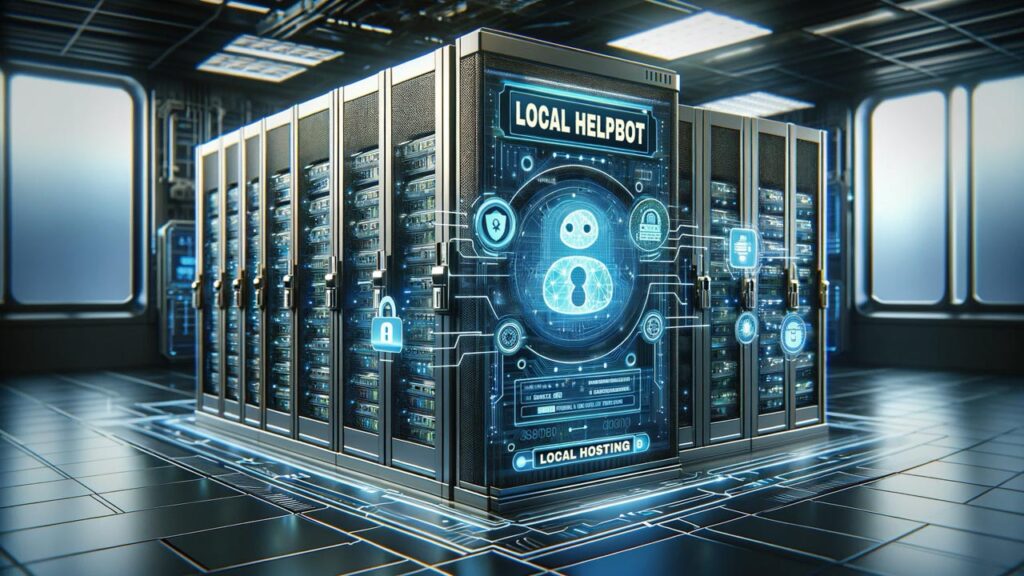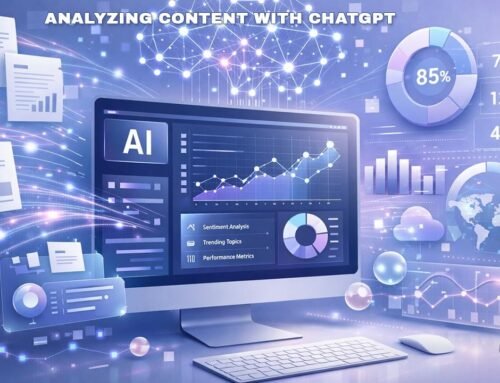Predictions for AI Chatbots in 2024 and Future Advancements in Chatbot Technology
Chatbots in 2024 will see the integration of advanced features such as personalized interactions, empathetic responses, advanced natural language processing, and improved machine learning algorithms, signaling a shift towards more intelligent, user-centric, and secure chatbot interactions.
Key Takeaways
- The LLM Revolution: Expect more intelligent and multifaceted chatbots powered by advanced LLMs.
- Domain-Specific Chatbots: Tailored chatbots for specialized domains will improve accuracy and efficiency.
- Data Security: Local hosting of LLMs for enhanced privacy and control.
- Responsible Behavior: Advanced features to ensure ethical and safe chatbot interactions.
- Empathy and Learning: Chatbots that understand emotions and learn from interactions.
- Personalization: Customized experiences based on user preferences and context.
Table of Contents
- Introduction: Chatbots in 2024
- The LLM Revolution: Next-gen Multimodal Chatbots
- Domain-Specific LLM-Powered Chatbots
- Data Security and Local Hosting in Chatbots
- Responsible Behavior in Chatbots
- Empathetic and Learning Chatbots
- Personalization and Context in Chatbot Interactions
- Advanced Natural Language Processing (NLP)
- Improved Machine Learning Algorithms
- Voice-Enabled and Multilingual Chatbots
- Top 10 Frequently Asked Questions
- Conclusion
Introduction: Chatbots in 2024
In my article I’ll dig into the future of chatbot technology, exploring how enhanced AI capabilities, from advanced Large Language Models to empathetic and personalized interactions, are setting the stage for a new era of digital communication. My piece offers a glimpse into a future where chatbots are not just tools, but intelligent, secure, and empathetic digital companions, reshaping our interaction with technology. Now, let’s dig in to the details…

The LLM Revolution: Next-gen Multimodal Chatbots
Transforming Virtual Assistants with Advanced AI
In the dynamic world of virtual assistants, Large Language Models (LLMs) like GPT-4 are playing a pivotal role. These advanced models are not just enhancing the capabilities of chatbots but are also setting new benchmarks in the industry. The successors of GPT-3.5, for instance, have already demonstrated their ability to access real-time online information, a significant leap from their predecessors. This evolution signifies the continuous growth and innovation in the field, promising a future where chatbots powered by LLMs surpass current industry standards.
Breaking New Grounds in Chatbot Capabilities
The advancements in LLMs have been monumental. Earlier, chatbots, even sophisticated ones, faced limitations in their ability to process and understand complex queries. Now, with the integration of models like GPT-4, chatbots are not just responding to queries but are doing so with an unprecedented level of comprehension and relevance. This shift is crucial in industries where accuracy and context are paramount. The capability of LLMs to evolve and adapt means that in 2024 and beyond, we can expect chatbots that are not just responsive but are truly intelligent and multifaceted.
The Impact on Various Sectors
This revolution is not confined to customer service alone. From healthcare to finance, the next-gen multimodal chatbots are set to transform every sector. In healthcare, for example, LLM-powered chatbots could provide preliminary diagnoses or health advice, significantly reducing the strain on medical professionals. In finance, these chatbots could offer personalized investment advice, considering the user’s financial history and goals. The possibilities are endless, and as LLMs continue to evolve, so will the applications of chatbots in various fields.
Preparing for a More Integrated Future
As we step into 2024, it’s clear that the chatbot industry is gearing up for a major transformation. The integration of LLMs into chatbots is just the beginning. With further advancements, we could see chatbots becoming an integral part of daily life, assisting in tasks ranging from mundane to complex. The key for businesses and developers is to stay ahead of this curve, embracing and integrating these advancements to remain competitive and relevant.
Challenges and Considerations
Despite the excitement surrounding these advancements, there are challenges to consider. Ensuring the ethical use of these powerful tools, protecting user data, and preventing misuse are crucial areas that need attention. Developers and businesses will need to work closely to establish guidelines and safeguards that ensure these advanced chatbots are used responsibly and beneficially.
Domain-Specific LLM-Powered Chatbots in 2024
Tailoring AI for Specific Needs
The era of one-size-fits-all chatbots is gradually giving way to a more tailored approach. Imagine a customer support chatbot, like “HelpDeskHero,” using a general-purpose LLM. While it’s effective for basic inquiries, its responses might lack the nuance needed for more complex, domain-specific issues. The future, however, holds great promise for domain-specific LLM-powered chatbots. These specialized virtual assistants are designed to cater to the unique demands of specific sectors, providing more accurate, contextual, and relevant assistance.

Enhancing Customer Support with Specialized Chatbots
In customer support, the transition to domain-specific chatbots represents a significant upgrade. These chatbots will not only interact with customers but also perform tasks like creating support cases and generating summaries of conversations. This capability can greatly streamline the support process, making it more efficient for both customers and agents. The nuanced understanding and contextual responses of these chatbots will address the unique aspects of each customer’s problem more effectively.
Beyond Customer Service: Broadening the Horizon
The implications of domain-specific chatbots extend beyond customer service. In sectors like healthcare, legal, and finance, these chatbots can offer specialized advice or assistance, drawing on a vast knowledge base tailored to their respective fields. For example, in healthcare, a chatbot could provide personalized medical information based on a patient’s history, while in finance, it could offer customized investment advice.
Preparing for a Future with Specialized Chatbots
The shift towards domain-specific chatbots necessitates a new approach in their development and deployment. It involves training these chatbots with data that is specific to a particular domain, ensuring they understand the intricacies and jargon of that field. Businesses and organizations must recognize the value of investing in these specialized chatbots to enhance their services and stay competitive.
Challenges in Implementation
While the benefits are clear, there are challenges in implementing domain-specific chatbots. Ensuring the accuracy of information, maintaining up-to-date knowledge bases, and training chatbots to understand complex domain-specific scenarios are key challenges. Additionally, addressing privacy concerns and ensuring compliance with industry-specific regulations are vital.
Data Security and Local Hosting in Chatbots
Prioritizing Privacy in the Age of AI
As chatbots in 2024 become more integrated into our daily lives, the concern for data privacy and security is more critical than ever. The deployment of LLMs, while beneficial, introduces significant risks, especially when hosted on public platforms. This concern is driving a trend towards local hosting of LLMs. By hosting these models locally, companies can enhance data security, ensure compliance with privacy laws, and have better customization and control over the chatbots.

The Advantages of Local Hosting
Local hosting of chatbots offers several advantages. Firstly, it gives organizations full control over their data, mitigating the risk of data leaks that are more common with publicly-hosted solutions. Secondly, it allows for better customization of the chatbot to fit specific organizational needs. Lastly, it ensures compliance with data protection laws, which is increasingly important as these regulations become more stringent globally.
The Rise of Hybrid Models
While local hosting offers significant benefits, it also comes with higher costs and complexity. As a result, we may see the emergence of hybrid models that combine the advantages of both local and public hosting. These models could offer the flexibility and scalability of public hosting while retaining the security and control benefits of local hosting.
Preparing for a More Secure Chatbot Ecosystem
Businesses and developers must be prepared for this shift towards local and hybrid hosting models. This preparation involves not only technical adjustments but also a strategic reevaluation of how chatbots are integrated into their operations. Companies need to balance the cost, complexity, and security to find the optimal hosting solution for their needs.
Challenges to Overcome
Transitioning to local hosting poses several challenges. It requires significant investment in infrastructure and expertise to manage and maintain these systems. Additionally, companies must ensure that their locally hosted chatbots remain up-to-date and capable of providing the same level of service as their cloud-based counterparts.
Responsible Behavior in Chatbots
Ensuring Ethical Interactions in the Digital World
As chatbots in 2024 become more advanced, ensuring their responsible behavior is crucial. There are concerns regarding chatbots being manipulated into providing inappropriate responses or divulging sensitive information. To address this, future chatbots are expected to incorporate advanced moderation features, like an embedded profanity layer, to prevent the dissemination of offensive or incorrect information. This addition will be vital for maintaining the integrity and safety of interactions in enterprise chatbots.

The DAN Prompt and Its Implications
The infamous DAN prompt highlights the potential for chatbots to be coaxed into lowering their defenses. This example underscores the need for robust measures to prevent chatbots from being exploited to generate harmful or sensitive content. The response to this challenge involves developing more sophisticated AI moderation tools that can detect and prevent such manipulations.
Balancing Openness with Safety
While it’s important for chatbots to be open and engaging, this shouldn’t come at the cost of safety and appropriateness. The future of chatbot development lies in striking a balance where chatbots can provide valuable and accurate information while avoiding harmful content. This balance requires continuous refinement of chatbot algorithms and monitoring systems.
Challenges in Moderation
Implementing effective moderation in chatbots presents several challenges. It requires a delicate balance between allowing chatbots to provide useful and diverse responses while preventing them from generating inappropriate content. Additionally, these systems need to be constantly updated to keep up with evolving language and social norms.
Empathetic and Learning Chatbots
Revolutionizing Customer Interaction with AI Empathy
Modern chatbots are not just about responding to queries; they are evolving to understand and interpret human emotions. With advancements in Natural Language Understanding (NLU), chatbots are now capable of sentiment analysis. This means they can discern not only the literal meaning of words but also the emotions and intent behind a user’s query. Such capabilities enable chatbots to decide whether to handle a query independently or escalate it to a human agent, leading to more effective and empathetic customer service.

Continuous Learning and Adaptation
One of the remarkable features of modern chatbots is their ability to learn and adapt from interactions. Each conversation provides data that helps these AI systems fine-tune their responses and expand their knowledge base. This continuous learning process ensures that chatbots become more efficient and effective over time, constantly improving the user experience.
The Human Touch in Digital Conversations
By understanding user sentiment, chatbots can tailor their responses to be more aligned with the user’s emotional state. This empathetic approach can significantly enhance customer interactions, making them feel more natural and human-like. It’s a step towards bridging the gap between digital and human interactions, where chatbots can offer support that feels more understanding and personalized.
Challenges in Implementing Empathy in AI
While the prospect of empathetic chatbots is promising, implementing this technology comes with challenges. Accurately interpreting emotions and context from text is complex, and there is a risk of misinterpretation. Additionally, ensuring that these systems respect user privacy and handle sensitive information appropriately is crucial.
Personalization and Context in Chatbot Interactions
Customizing the Chatbot Experience
The future of chatbot interactions lies heavily in personalization and context awareness. As seen in industries like media streaming, chatbots are increasingly capable of understanding individual user preferences and histories. For instance, a chatbot on a streaming platform can recommend movies based on a user’s viewing history, such as suggesting a film like “Inception” to a fan of action and sci-fi genres. This level of personalization not only enhances the user experience but also fosters a deeper connection between the user and the platform.
Breaking Language Barriers with Multilingual Support
In addition to personalization, the multilingual capabilities of chatbots are set to break down language barriers in 2024. This development means users can interact with chatbots in their preferred language, making these digital assistants more accessible and user-friendly. Multilingual support is not just a convenience; it represents a significant step in making technology inclusive and available to a broader audience.

The Role of Machine Learning and NLP
The advancements in machine learning and natural language processing (NLP) are the driving forces behind this trend. These technologies enable chatbots to understand and respond accurately to a wide range of queries while considering the user’s context and preferences. As these algorithms become more sophisticated, chatbots will offer increasingly tailored and relevant interactions.
Challenges in Personalization and Context Awareness
Achieving high levels of personalization and context awareness is not without challenges. It requires a delicate balance between offering personalized recommendations and respecting user privacy. Additionally, ensuring the accuracy and cultural appropriateness of responses in multiple languages is a complex task that requires ongoing refinement.
Advanced Natural Language Processing (NLP)
Revolutionizing Chatbot Communication
As we step into 2024, one of the most significant advancements in chatbot technology is in the realm of Natural Language Processing (NLP). Enhanced NLP is enabling chatbots to not only understand and interpret human language more accurately but also to grasp the context, sentiment, and even subtleties like sarcasm. This evolution marks a substantial leap in how chatbots communicate, making conversations more meaningful and contextually relevant.

Breaking Down Complex Language Patterns
The improvements in NLP algorithms mean that chatbots are now more adept at parsing complex language patterns. They can discern the nuances of different dialects, regional expressions, and industry-specific jargon. This capability is crucial in sectors like healthcare, legal, and finance, where the accuracy of language interpretation can have significant implications.
The Future of Human-AI Interaction
With these advancements, chatbots are becoming increasingly human-like in their interactions. They can engage in more fluid, natural conversations, understand a range of emotional cues, and respond in a way that is not just accurate but also empathetic. This shift is expected to redefine the user experience, making interactions with AI more comfortable and less robotic.
Challenges and Opportunities
While enhanced NLP offers exciting opportunities, it also presents challenges. Ensuring the accuracy and ethical use of NLP, especially in sensitive applications, is paramount. There’s also the challenge of continuously updating and training these systems to adapt to evolving language use and social norms.
Improved Machine Learning Algorithms
Enhancing Chatbot Intelligence
The advancements in machine learning algorithms are playing a crucial role in the evolution of AI chatbots in 2024. These improved algorithms are the backbone of chatbots, enabling them to learn from past interactions and progressively improve their responses. This continuous learning process is essential for chatbots to become more intelligent, capable of handling increasingly complex queries and providing more satisfying user experiences.
Learning from Interaction: A Step Towards AI Sophistication
The key to these advancements lies in the chatbots’ ability to learn from each interaction. This means that every conversation helps to refine the chatbot’s understanding and response mechanisms. Over time, this leads to a marked improvement in the chatbot’s performance, making it more adept at handling a diverse range of queries and scenarios.

The Impact on User Experience
With improved machine learning algorithms, chatbots are becoming more responsive and intuitive. Users can expect more accurate answers and solutions tailored to their specific needs and contexts. This enhancement in user experience is critical for businesses that rely on chatbots for customer service, as it directly influences customer satisfaction and loyalty.
Challenges in Machine Learning Development
Developing these advanced algorithms is not without its challenges. One of the primary concerns is ensuring that the learning process is unbiased and ethical. Additionally, as chatbots become more sophisticated, they require more computational resources, posing a challenge in terms of scalability and efficiency.
Voice-Enabled and Multilingual Chatbots
The Rise of Voice Interaction
In 2024, voice-enabled chatbots are becoming a significant trend. With the popularity of voice assistants like Siri and Alexa, chatbots are adapting to this mode of communication. These voice-enabled chatbots allow users to interact using voice commands, making conversations more natural and convenient. This shift represents a significant advancement in making chatbot interactions more human-like.

Advancements in Voice Recognition Technology
Crucial to this development is the improvement in voice recognition technology. It enables chatbots to accurately understand and transcribe spoken language. In 2024, we can expect substantial enhancements in this technology, leading to more reliable and efficient voice-enabled chatbot interactions.
Breaking Language Barriers with Multilingual Support
Another key development is the introduction of multilingual support in voice-enabled chatbots. This feature allows users to interact with chatbots in their preferred language, significantly enhancing accessibility and user experience. It’s a move towards inclusivity, making technology accessible to a wider, more diverse audience.
Challenges and Future Outlook
Implementing voice recognition and multilingual capabilities presents its own set of challenges, including accurately understanding different accents, dialects, and languages. However, these advancements are essential for creating a more inclusive and user-friendly chatbot experience.
Top 10 Frequently Asked Questions
Conclusion
Chatbots are set to revolutionize many sectors by offering a more intelligent, user-centric, personalized interactions. As we move into 2024, the focus will increasingly shift towards specialized chatbots, heralding a new era in AI-driven customer interaction and support. It’s going to be an exciting year for all of us and the AI Chatbots too! I can’t wait to see how all this unfolds. I expect to see an accelerated period of growth for our new intelligent digital companions.
If you’re interested in learning more about the innovative applications of AI in marketing, particularly how ChatGPT can transform your digital marketing strategies and customer interactions, click here to dive into our comprehensive guide on Digital Marketing with ChatGPT.









Leave A Comment